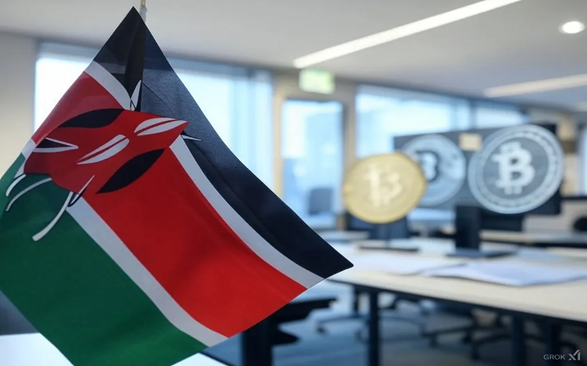by Jude Ayua
The Virtual Assets Chamber of Commerce (VACC), a virtual assets advocacy group in Kenya, has presented policy recommendations to the country’s technical working group on virtual asset regulations. The proposal represents the interests of private sector blockchain stakeholders in Kenya. The group made the submission as public consultations on the country’s draft virtual asset frameworks drew close.
VACC announced on X on 29 January:
The Virtual Asset Chamber proudly represented blockchain & virtual asset stakeholders at the final public participation for the 2025 VASP Bill & National Policy Framework. We ensured key industry stakeholder concerns on tax, innovation & operations were addressed.
Key Proposals
- Review of the 3% digital asset tax: VACC proposed a review of the 3 percent digital asset tax (DAT), which the group said is high and could hamper the virtual asset sector’s growth. Allan Kakai, director at VACC, stated that such a high tax rate “far exceeds our customers’ profit margins.” Kakai emphasized it is a threat to the viability of Kenya’s blockchain industry.
- Adopting policy reforms from other regions, including EU: The group also recommended that Kenya should align its virtual assets regulations with international frameworks. VACC cited the European Union’s Markets in Crypto Assets (MiCA) regulation as a model. MiCA, which came into full force in December 2024, is keen on consumer protection. The regulation mandates crypto-asset issuers to provide detailed whitepapers outlining the nature, features, and risks of their products, ensuring transparency and informed decision-making for investors. It requires crypto-asset service providers (CASPs) to obtain licenses and comply with operational standards, including maintaining adequate capital reserves and implementing cybersecurity measures.
- The creation of a local stablecoin: VACC also proposed the development of a local stablecoin to reduce dependence on the US dollar in crypto transactions. The proposal for a locally issued stablecoin is a welcome idea as there are only two known stablecoins backed by an African local currency. In 2019, Ghana-based Bit Sika partnered Linova Capital to launch the Africa Stable-Coin (ABCD), a stablecoin backed by the Nigerian Naira. Recently, the Africa Stablecoin Consortium, comprising Nigerian banks and fintech firms, announced plans to introduce the cNGN, a Naira-pegged stablecoin to be fully backed by deposits in designated commercial banks.
Read also: Kenya seeks consultation on virtual assets regulations following IMF technical assistance report.
Kenya’s regulation of virtual assets
Kenya’s National Treasury and Economic Planning, as part of the country’s Multi-Agency Task Force, developed a draft National Policy on Virtual Assets (VAs) and Virtual Asset Service Providers (VASPs) in December 2024, along with the Virtual Assets Service Providers Bill 2025. The Task Force held public consultations in respect of the proposed frameworks until 31 January 2025.
The proposed national policy seeks to regulate and oversee the VAs sector, promoting market fairness, risk management, financial literacy, and consumer protection. It would also align with international standards such as the Financial Action Task Force recommendations and International Organization of Securities Commissions. The policy would address risks associated with the adoption of VAs in Kenya, particularly among young users, such as money laundering and terrorism financing.
The VASPs Bill aims to establish a regulatory framework for Kenya’s virtual asset sector. It prioritizes consumer protection, financial stability, and market integrity in line with the draft national policy and International Monetary Fund recommendations. Key provisions include mandatory licensing for VASPs, with the Capital Markets Authority (CMA) and the Central Bank of Kenya (CBK) designated as primary regulators for supervision, enforcement, and guideline issuance.
Kenya is one of the largest crypto markets in Africa. As adoption rate increases, the need for a clear regulatory framework is also important. With concerns around high taxation and overregulation, regulators need to consult more closely with private stakeholders to balance regulation with innovation. With public consultations on the proposed frameworks now closed, the Task Force is expected to finalize and for subsequent approvals.
Read also: Bank of Namibia grants provisional licenses to two VASPs.
Jude Ayua is a policy analyst at CAB. A lawyer, Jude is an associate at Infusion Lawyers where he is a member of the Blockchain & Virtual Assets Group. He is also a member of the Policy & Regulations Committee of the Stakeholders in Blockchain Technology Association of Nigeria (SiBAN). Jude reports and writes on crypto policy and regulations. jude@infusionlawyers.com
Discover more from Crypto Asset Buyer
Subscribe to get the latest posts sent to your email.





